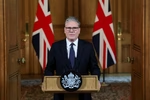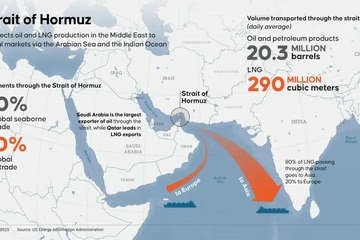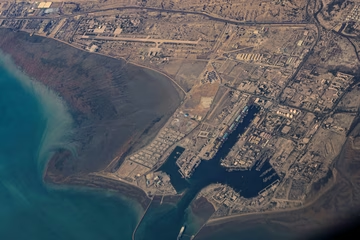Trump's return could shift U.S. foreign policy on Russia and Middle East, warns Rosensaft

Menachem Z. Rosensaft, a law professor at Cornell University and lecturer at Columbia University, shared concerning predictions with N1 regarding the potential impact of Donald Trump’s return to the helm of the United States.
Rosensaft specifically highlighted the likelihood of shifts in U.S. foreign policy toward Russia and the Middle East. He believes these shifts could weaken U.S. support for Ukraine and pave the way for Saudi Arabia to wield greater influence in the Israeli-Palestinian conflict.
During his previous term, Trump repeatedly expressed a friendly stance toward Russian President Vladimir Putin, and his relationship with Ukraine stirred significant controversy.
“Based on the admiration and clear affinity Donald Trump demonstrated toward Vladimir Putin during his first term as president, I am concerned that Trump would halt U.S. military and economic support for Ukraine, thereby strengthening Putin’s position and making it harder for Ukraine to resist Russian aggression,” Rosensaft told N1. He further emphasized that such a move would contradict decades of established Republican geopolitical ideology.
Rosensaft went on to explain that Trump’s anti-globalist and isolationist tendencies undermine the U.S. role as a guardian of international freedom and democracy. He also expressed concern that Trump would give Israeli Prime Minister Benjamin Netanyahu significantly more freedom while showing little empathy toward the suffering of Palestinians in Gaza.
“He’s never shown empathy for anyone, so there’s no reason to believe he would start now,” Rosensaft added.
Rosensaft also examined Trump’s apparent affinity for Saudi Arabia and its "distinctly undemocratic form of government." Under Crown Prince Mohammed bin Salman, Saudi Arabia has emerged as an ambitious player in conflicts and negotiations across the region, now wielding influence in major geopolitical issues, such as the Iranian nuclear deal, the war in Yemen, the Israeli-Palestinian conflict, and economic relations with Western nations, including the United States.
“This means that Trump’s actions and positions on Israel and the Israeli-Palestinian conflict, including the ongoing war between Israel and Hamas in Gaza, could ultimately depend on what Saudi Arabia – specifically Crown Prince and Prime Minister Mohammed bin Salman Al Saud – wants to happen. Netanyahu may very well find himself sending prayers toward Mecca,” Rosensaft concluded.
Saudi Arabia, traditionally known for its conservative role in the region, has started to bolster its position through modernization projects, strategic alliances with leading global powers, and investments across various sectors, including oil, energy, and tourism.
Critics often caution that close U.S.-Saudi relations could erode America’s standing as a proponent of human rights and democracy on a global scale. Concerns also arise that strong support for authoritarian regimes might destabilize the region, creating long-term security challenges.
On the other hand, advocates of closer ties emphasize that Saudi Arabia is one of the world’s largest oil producers and that stable relations ensure access to energy resources and stability in the global oil market.
Kakvo je tvoje mišljenje o ovome?
Učestvuj u diskusiji ili pročitaj komentare





 Srbija
Srbija
 Hrvatska
Hrvatska
 Slovenija
Slovenija



























































